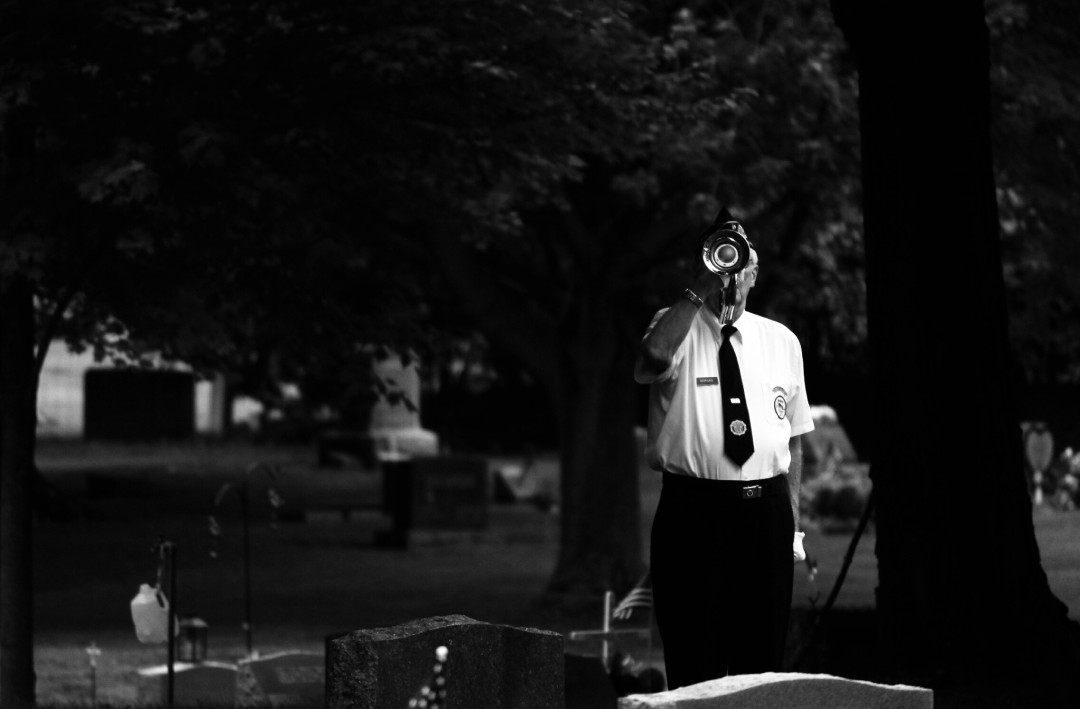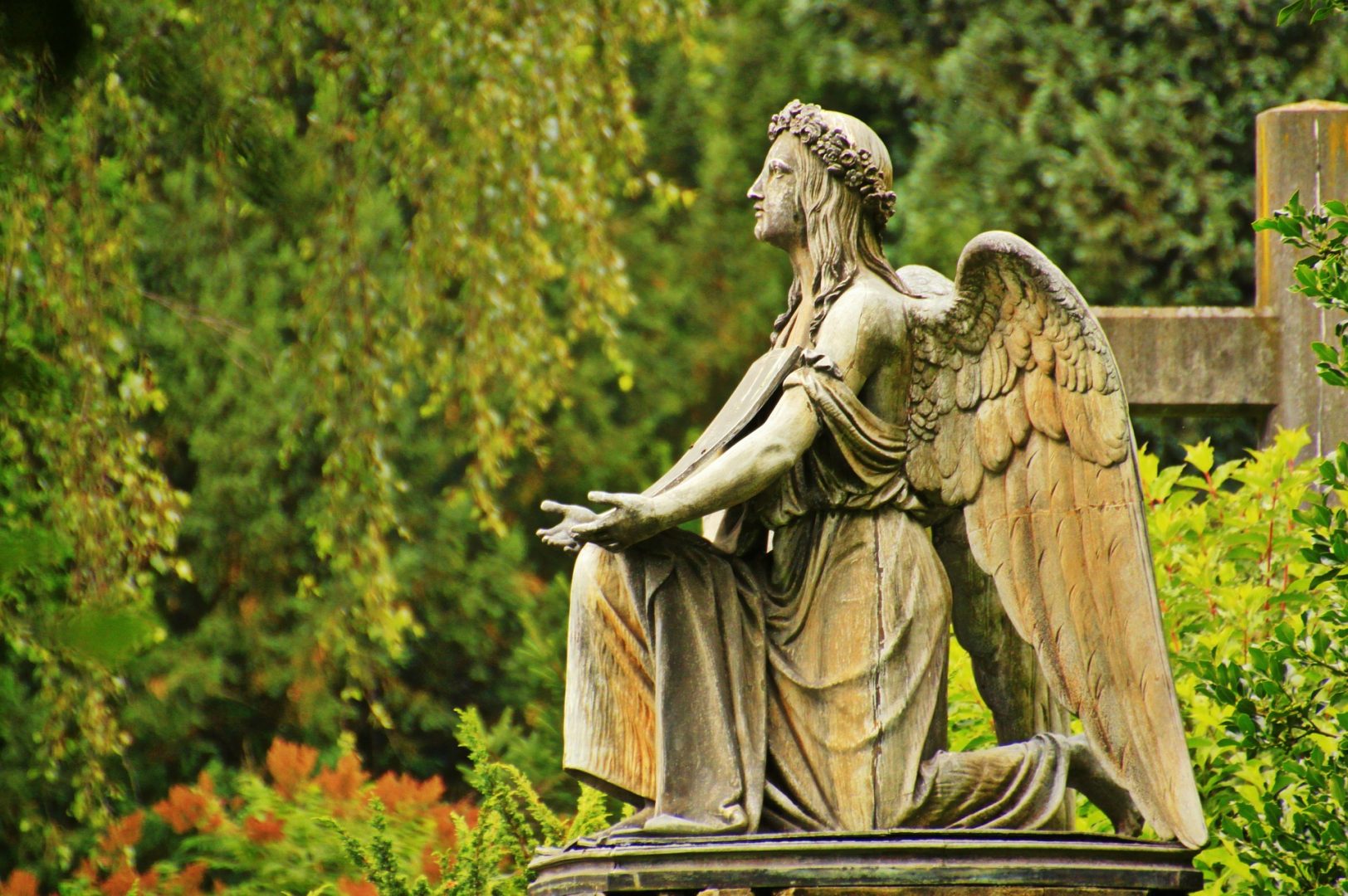How to Choose Funeral Music – Be True to the Deceased

Dating back thousands of years, music has long since been a part of funeral services. Music is closely tied to ceremonies and important events in all of human culture. The Romans used to hire musicians to accompany undertakers; music was used to care for the souls of the dead for the ancient Balinese, and Australians indigenous people would send messages to their dead loved one through music.
In West Africa there has been a llong-standingburial tradition of rejoicing at death through music. This tradition was witnessed in 1819 at a New Orleans funeral. Solemn music was played by a brass band on the way to the grave site and happy, celebratory music on the return. It is thought that rejoicing with this music was a way in which to celebrate the life that had been lost.
Music stirs our emotions, can help people connect with their grief, provide joy and help uplift our spirit. It can provide structure and evoke strong memories. Music can be very powerful and help to support the memorial service or funeral in multiple ways.
In today’s technology, just about any music can easily be accessed to use in a service. No longer are the days of having the limited selection from the funeral home’s standard choices. The days of organs and vocalists are in the past. Today most anything goes for music in a funeral service. There is not the expectation of a traditional instrument or hymn selection. Many people want to personalize the memorial service and one easy way to do that is through music.
Here are a few suggestions on how to select funeral music.
Think About the Venue
One thing that does have to be considered is the venue and what type of licenses they have to use music. This is not something you need to investigate on your own, the venue you choose will know what they can and cannot do pertaining to copyright law and the music you have chosen.
If you are having the service at a church or another religious establishment you may be bound to the traditions and restrictions of that religion. You may wish to consult with a clergy member to discuss their expectations in regards to music.
Most venues will have the audio equipment needed to play music from an mP3 player, iPod, CD or phone. If you think you are going to need special equipment make sure that the venue can accommodate your needs. The Funeral home should be able to handle these arrangements for you.
Personalize Music to the Deceased
Did you loved one have a favorite type of music, or a particular song? What would most appropriately remind others of them? Many people are choosing music that have importance to the person they are mourning.
What type of work did the deceased do? Perhaps they worked for a church. Maybe you would want to have a church choir perform.
Was the deceased on the police force? Traditionally a bagpipe will be used at the funeral of a US police officer. This tradition stems from bagpipe music being used in Irish funerals. The practice became common when many US police officers were of Irish decent. Now it is standard to have bagpipes playing at a police funeral.
Was the deceased ever in the military? The simple 24 note song of “Taps” is played on the bugle for a military service. This highly honored sentiment dates back to the Civil War. It was first played at a military funeral for a fallen cannoneer. The bugle was played over the grave, as a safer alternative to the traditional three rifle volley over the grave, which may have been misinterpreted by the enemy as an attack.
Personalizing the music to the deceased is a way to express sentiment and to honor to them. It is also meaningful to integrate music from their cultural or ethnic background. The funeral music you choose does not have to be traditional.
What Tone do You Want to Set:
As you listen to different music selections keep in mind the tone you wish to set. Are you having a celebration of life that you want to be more upbeat and celebratory? Would you prefer a more introspective and reflective tone? What type of music selection would convey the tone you are hoping to set? You may wish to have a variety of music genera from traditional church hymns, popular music or instrumental music. Listening to music through the filter of what tone you wish to set for the service can help you to narrow your music selections.
The use of lighthearted or humorous songs has become commonplace during a memorial service. The shift from mourning to one that celebrates the life lived can be enjoyable and uplifting. This can change the mood or tone of the service. The decision to add non-traditional songs can be taken from the personality of the person who died and the circumstances surrounding the death. The needs and feelings of the attendees may run the gamut and it is important to recognize this to be inclusive without being offensive.
Consult with Others
Planning a funeral can be very overwhelming. There are so many things to decide on. This is a decision in which you may find it helpful to consult other family members or close friends. They may have ideas that you wouldn’t have thought of. They may help you more easily decide if you want to have a vocalist or musicians as opposed to pre-recorded music. The decisions here can grow exponentially. Do you have professional musicians perform, should you select a friend or family member to sing? What will best honor the deceased as well as help set the tone you wish to set. You may find it very helpful to have family and friends to consult in these decisions. However, remember that you ultimately can have the final say.
Is Their Music Library Accessible
Is the deceased music library accessible? If you are able to look at their personal music choices this may give you great insight into what music would be most meaningful to them. Remember you are trying to set a tone and an environment that honors them. These songs can bring back memories for attendees and will make room for them to reflect on the life that the deceased lived. Hearing a song that the deceased loved may bring back specific moments or memories which allows those grieving to share those memories which is an important part of the service.
Music selection can impact the tone greatly, especially if you are able to put your hands on their personal music collection. No matter the type of music there are ways to tastefully incorporate those music selections into the service.
Check Out Lyrics
If music with lyrics has been selected make sure to preview all the lyrics prior to placing the music on the funeral playlist. There are a number of websites out there that provide the lyrics so you can read each word. The actual lyrics of songs can sometimes catch you by surprise and the funeral is not the place you want to be caught off guard by a “colorful” chorus or refrain. This is also something easy you can ask for help with or consult with others about.
Thinking of Attendees
Because music can be very powerful it will often evoke unexpected emotions. While expressing emotions at a funeral is healthy, it is important to be cognoscente of how it may make mourners feel. This may influence what songs are selected or the order in which they are placed in for the service. Songs that evoke sorrow and grief may be best used early in the service, those of remembrance in the middle and songs with the message of hope used at the end of the service.
Traditional music from a particular culture or faith can be comforting to many people. Whoever is officiating the service may have recommendations for you. Make sure to discuss your wishes prior to the service.
When to Play Music
While there is no wrong way to integrate music into a funeral, knowing when to play music will help you with song choice. Having music playing as people arrive can be a good way to create the ambiance you are striving for. Instrumental music is a great choice for arrival as it allows for conversation yet fills in potential awkward silences. During the service, it can provide support and time for quiet reflection as well as helping with the flow of the service. Music can be very helpful in opening and closing the funeral as well.
Different religions have their own traditions or customs for incorporating music into the funeral service. Here are a few general guidelines:
Protestant: In most protestant traditions music is an integral part of the service which includes common funeral hymns.
Catholic: Often include 2-3 songs that families may be asked to select from a list provided. This is different than a Funeral Mass, which usually has preselected music.
Jewish: Music is not typically used in a Jewish funeral service. However, if the music is important to you, speak to your Rabbi about how you can fit music into other parts of the process.
Ultimately you want the funeral music you have chosen to:
- Be meaningful and honor the deceased
- Set the tone for the service
- Help the attendees to reflect on the person being celebrated
- Offer comfort
Bottom line, there is no wrong music choice as long as you keep it tasteful and you are not limited by genre or style. What is important to keep in mind is that the music respects and honors the deceased.



